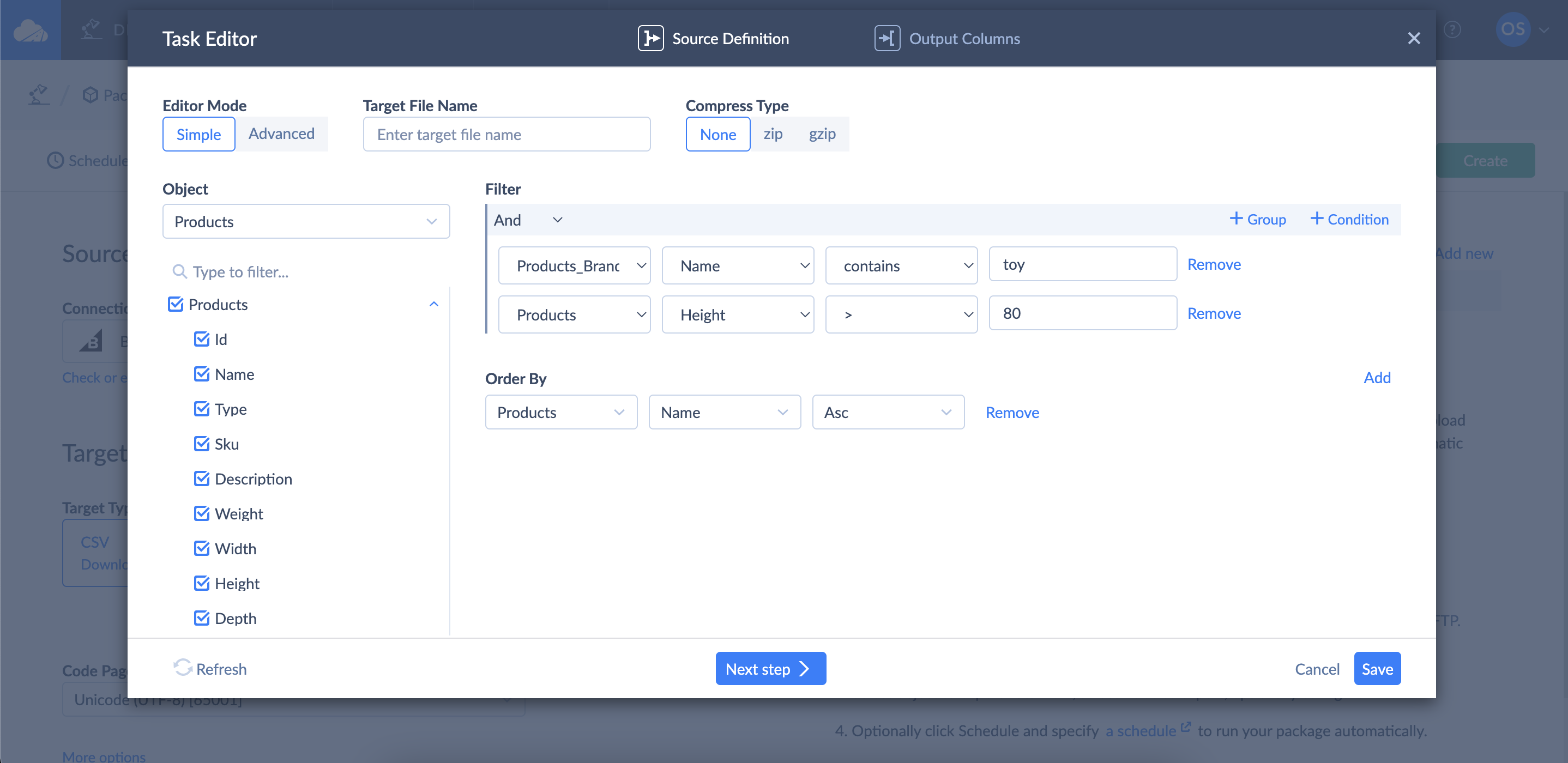Export Overview
Skyvia export operation is used to export cloud application or relational database data to CSV files, either locally downloaded or placed to cloud file storage services.
Multiple Export Tasks
Skyvia allows performing several export tasks in one integration and, thus, export several database tables or cloud objects together in a single export operation.
Exporting Related Object Data
Skyvia allows you to select fields to export from the main source object and its related objects. For example when you export prices from the Salesforce PriceBookEntry object, you can easily include product Name from the Product2 object and pricebook name from the Pricebook2 object.
Data Filtering

Filter data by both exported and not exported data fields. Add multiple filter conditions and unite them in groups with logical operators to set filters of any complexity. If exported object has related objects they will be displayed in the first dropdown.
Please note: when you filter data by DateTime value, set it according to UTC time zone which can be different from your local time zone.
SQL and Query Builder Support
Skyvia also allows querying data with SQL statements in the export integrations. You can enter SQL statements yourself and edit via code editor if needed or compose SELECT statements with our convenient query builder.
Skyvia supports SQL and Query Builder functionality only for the export integrations, which use the new data integration runtime, and only when the advanced task editor mode is selected. Read more about it here.
Compression Support
Skyvia allows compressing the result files using either zip or gzip compression.
When exporting date/time data, Skyvia converts it to UTC.
When you export data to a CSV file to your PC, the files are available for download for 7 days.
Export Tutorials
Skyvia provides the following tutorials on data export:
- How to Export Salesforce Attachments for Specific Object
- How to Set Up Daily Backup of Salesforce Contacts to Dropbox